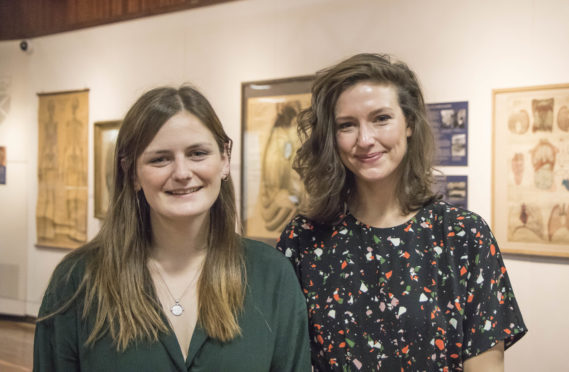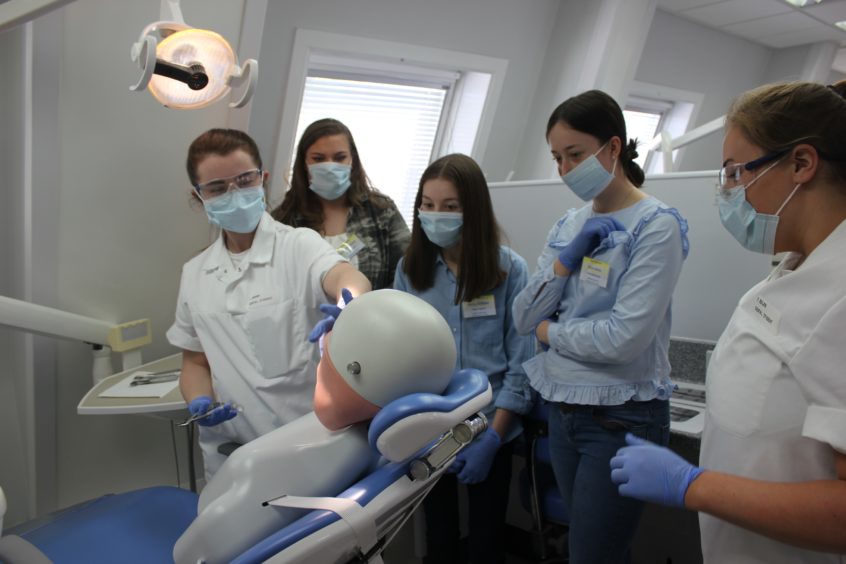Raising aspirations and overcoming budget constraints will be vital to getting more children from schools in deprived areas into higher education, Dundee University experts have said.
Helen Hardman and Amy Stewart head up the university’s ACES and Reach projects, which are supported by the Scottish Funding Council.
Both projects aim to help school pupils gain access to highly competitive courses that have additional entry requirements, such as art and design and architecture (ACES) and medicine, dentistry and law (Reach).
Reach works with 17 schools in Tayside, and ACES with 29 across Tayside and Fife.
As well as offering pupils the chance to visit university and get a taste of student life, they help pupils with their applications and supporting personal statements.
The teams have also created a support network to help pupils overcome the barriers that make university – and even studying some subjects at school – seem unattainable.
Ms Hardman said: “Budget cuts are a common story we’re hearing from all of our schools. One principal teacher of art and design told me that the budget she had to spend each year amounted to £1 per pupil at her school. That has to cover materials, paper, the cost of sending work away to be assessed, everything.
“Sometimes a pupil might be the only person in their school to sit art and design at advanced higher level, or they might be the only person applying to study that at university.
“If there is a teacher shortage or there aren’t enough numbers to form a full class what some schools are doing is putting together mixed level classes.
“In one of my schools one class had pupils studying Nat 1, Nat 4, Nat 5, Higher, one Advanced Higher and portfolio all in one group. This adds challenges for pupils looking to take this subject further.”
The University’s City Campus initiative offers pupils a wider range of subjects than might be on offer at their own schools. Youngsters can also travel to other schools in the area for lessons.
Ms Stewart said a lack of role models was another psychological barrier.
She said: “In some schools there have been teachers who’ve said ‘It’s not for you’ while parents might say ‘people like us aren’t doctors’.
“Sometimes the trick to overcoming preconceptions is to get pupils thinking about the subject in a different way. So we might not even use the word medicine as that can be a huge and scary concept to them.
“Instead we’ll break it down and say ‘what is it you enjoy about biology?’ or ‘is there something particular you enjoy about science?’ so we can show them they have the attributes and potential to be a doctor.”











